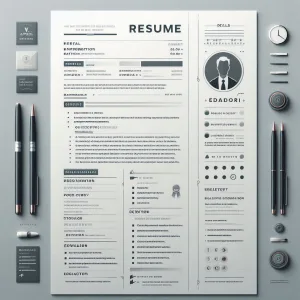Finding suitable staffing can be a challenging task for many businesses. Internal audit plays a pivotal role in the governance and risk management framework of organizations. It serves as an independent assurance function that evaluates the effectiveness of risk management, control, and governance processes. By providing insights into operational efficiency and compliance, internal audit helps organizations achieve their strategic objectives while safeguarding assets and enhancing stakeholder confidence.
In the context of internal audit, the concept of a talent pipeline refers to a proactive approach to staffing that ensures a continuous flow of qualified candidates ready to meet the evolving demands of the audit function. This pipeline is not merely about filling positions as they become vacant; it involves a strategic focus on identifying, developing, and retaining talent that aligns with the organization’s long-term goals.
Strategic staffing is essential for the long-term success of internal audit functions. Organizations must anticipate future skill needs and critical roles that align with their strategic objectives. By implementing proactive recruitment strategies and fostering a culture of continuous learning and development, audit teams can build a robust talent pipeline that not only addresses current staffing needs but also prepares for future challenges. This approach not only enhances the effectiveness of the internal audit function but also contributes to the overall resilience and adaptability of the organization in a rapidly changing business environment.
Suitable staffing in internal audit is not just about filling roles; it is about creating a sustainable talent pipeline that supports the organization’s mission and enhances its governance framework.
Understanding the Internal Audit Landscape
In the evolving field of internal audit, organizations are increasingly recognizing the importance of a well-structured talent pipeline to ensure long-term success. This section delves into the current state of internal audit staffing, highlighting trends, challenges, and the impact of technology on staffing needs.
Trends in Internal Audit Functions and Evolving Skill Requirements
The internal audit landscape is undergoing significant transformation, driven by the need for auditors to possess a diverse set of skills. Today’s auditors are expected to be well-versed in various areas, including risk management, compliance, and data analytics. This shift is largely due to the increasing complexity of business environments and regulatory requirements, which demand a more strategic approach to auditing. As a result, firms are actively seeking audit talent with new skill sets to navigate these challenges effectively [3].
Moreover, organizations are adopting strategic sourcing and hiring practices to ensure they have the necessary skills to address both current and emerging needs. This approach not only focuses on filling immediate vacancies but also on building a robust talent pipeline that can adapt to future demands [2].
Common Challenges in Recruiting and Retaining Audit Talent
Despite the growing recognition of the importance of internal audit, many organizations face significant challenges in recruiting and retaining qualified audit professionals. One of the primary issues is the perception of internal audit as a less attractive career path compared to other finance roles. This perception can deter potential candidates who may not see the value or excitement in an audit career [4].
Additionally, the competition for skilled talent is fierce, as many organizations are vying for a limited pool of qualified candidates. This competition can lead to difficulties in attracting top talent, particularly when organizations do not have a clear value proposition or fail to communicate the dynamic nature of internal audit roles [4].
Retention is another critical challenge, as audit professionals often seek opportunities for growth and development. Organizations must focus on creating a high-performing and engaging work environment to retain their talent. This includes offering professional development opportunities, competitive compensation, and a clear career progression path [4].
The Impact of Technology and Automation on Staffing Needs
The integration of technology and automation into internal audit functions is reshaping staffing requirements. As organizations increasingly leverage data analytics and automated tools, the demand for auditors with technical skills is on the rise. This shift necessitates a reevaluation of traditional staffing models, as auditors must now be proficient in using advanced technologies to enhance their audit processes [3][7].
Moreover, technology can streamline many routine audit tasks, allowing auditors to focus on more strategic activities. This evolution not only changes the skill sets required but also impacts the overall structure of audit teams. Organizations must adapt their staffing strategies to ensure they have the right mix of technical and traditional audit skills to meet the demands of a technology-driven environment [3][7].
Understanding the current state of internal audit staffing is crucial for talent acquisition specialists and audit team leaders. By recognizing the trends, challenges, and technological impacts on staffing needs, organizations can develop effective strategies to create a sustainable internal audit talent pipeline that supports long-term success.
Defining the Ideal Internal Audit Candidate
Creating a robust talent pipeline for internal audit requires a clear understanding of the competencies and qualifications that define an ideal candidate. This section outlines the essential skills, the importance of soft skills, and the significance of cultural fit in the staffing process.
Essential Skills and Qualifications for Internal Auditors
- Analytical Skills: Internal auditors must possess strong analytical abilities to assess complex data and identify trends, anomalies, and areas of risk. This skill is crucial for effective risk assessment and decision-making [5].
- Communication Skills: Effective communication is vital for internal auditors, as they need to convey findings and recommendations clearly to various stakeholders. This includes both written and verbal communication skills, which facilitate collaboration and understanding across departments [7].
- Risk Management Expertise: A solid understanding of risk management principles is essential. Internal auditors should be adept at evaluating risks and implementing strategies to mitigate them, ensuring that the organization remains compliant and secure [5].
- Technical Proficiency: Familiarity with auditing standards, frameworks, and tools is necessary. Candidates should be well-versed in the International Professional Practices Framework (IPPF) and other relevant guidelines to ensure adherence to best practices [2].
- Continuous Learning: Given the evolving nature of risks and regulations, internal auditors should demonstrate a commitment to continuous professional development. This includes staying updated on industry trends and enhancing their skill sets [9].
Importance of Soft Skills
While technical expertise is critical, soft skills play an equally important role in the effectiveness of internal auditors. Key soft skills include:
- Interpersonal Skills: The ability to build relationships and work collaboratively with diverse teams is essential. Internal auditors often interact with various departments, and strong interpersonal skills facilitate smoother communication and cooperation [6].
- Critical Thinking: Internal auditors must be able to think critically and approach problems from multiple angles. This skill enables them to evaluate situations thoroughly and make informed recommendations [7].
- Adaptability: The internal audit landscape is constantly changing, and auditors must be adaptable to new challenges and environments. This flexibility allows them to respond effectively to emerging risks and organizational changes [5].
Significance of Cultural Fit and Alignment with Organizational Values
Cultural fit is a crucial consideration when staffing internal audit teams. Candidates should not only possess the necessary skills but also align with the organization’s values and culture. This alignment fosters a sense of belonging and enhances job satisfaction, which can lead to higher retention rates.
- Shared Values: Internal auditors who resonate with the organization’s mission and values are more likely to be engaged and committed to their roles. This shared understanding can improve collaboration and the overall effectiveness of the audit function [9].
- Team Dynamics: A strong cultural fit contributes to positive team dynamics, which is essential for a high-performing internal audit team. When team members share similar values and work ethics, it enhances cooperation and productivity.
Defining the ideal internal audit candidate involves a comprehensive approach that encompasses essential technical skills, soft skills, and cultural alignment. By focusing on these areas, talent acquisition specialists and audit team leaders can strategically build a talent pipeline that supports long-term staffing success in internal audit.
Building a Talent Pipeline Strategy
Creating a robust talent pipeline for internal audit is essential for ensuring that organizations can meet their evolving staffing needs while maintaining high standards of performance and compliance. Here are actionable steps to develop a sustained talent pipeline strategy:
1. Identifying and Forecasting Staffing Needs
- Assess Current and Future Needs: Begin by evaluating the current capabilities of your internal audit team and identifying gaps in skills or resources. This involves analyzing the organization’s strategic goals and understanding how they impact audit requirements. Consider factors such as upcoming projects, regulatory changes, and technological advancements that may necessitate additional expertise [6][10].
- Utilize Data-Driven Insights: Leverage data analytics to forecast future staffing needs. This can include examining historical hiring trends, turnover rates, and the impact of external market conditions on talent availability. By employing predictive analytics, organizations can better anticipate the skills and roles that will be required in the future [3][14].
2. Collaborating with HR and Recruitment Teams
- Define Staffing Strategies Together: Collaboration with HR and recruitment teams is crucial in developing a cohesive staffing strategy. This partnership should focus on creating clear job descriptions, identifying essential competencies, and establishing a streamlined recruitment process that aligns with the internal audit function’s specific needs [4][9].
- Employer Branding: Work with HR to enhance employer branding efforts, making the internal audit function more attractive to potential candidates. Highlight the value of working in internal audit, such as opportunities for professional development, career advancement, and the impact of audit work on organizational success [8][15].
3. Succession Planning and Internal Mobility
- Implement Succession Planning: Establish a succession planning framework that identifies high-potential employees within the internal audit team. This involves assessing their skills, interests, and career aspirations to prepare them for future leadership roles. By proactively developing these individuals, organizations can ensure a steady flow of qualified candidates for key positions [13].
- Promote Internal Mobility: Encourage internal mobility by creating pathways for employees to transition into different roles within the audit function. This not only helps retain talent but also fosters a culture of continuous learning and development. Providing opportunities for cross-training and mentorship can enhance employees’ skills and prepare them for future challenges [12][14].
By implementing these best practices, organizations can build a sustainable talent pipeline that not only meets current staffing needs but also prepares for future challenges in the internal audit landscape. This strategic approach will ultimately lead to a more agile and capable internal audit team, ready to respond to the dynamic demands of the business environment.
Sourcing and Attracting Internal Audit Talent
In the quest for building a robust internal audit team, it is essential to implement effective strategies for sourcing and attracting suitable candidates. This section outlines key practices that talent acquisition specialists and audit team leaders can adopt to create a sustainable talent pipeline.
Effective Sourcing Channels
Identifying the right sourcing channels is crucial for attracting qualified candidates to the internal audit function. Here are some effective avenues to consider:
- Universities and Colleges: Establish partnerships with academic institutions that offer accounting, finance, or business programs. Engaging with students through career fairs, guest lectures, and internship opportunities can help identify promising talent early in their careers.
- Professional Associations: Collaborate with organizations such as the Institute of Internal Auditors (IIA) or local accounting societies. These associations often provide access to a network of professionals and resources that can aid in recruitment efforts.
- Industry Events: Attend conferences, seminars, and workshops related to internal auditing. These events not only allow for networking with potential candidates but also help in understanding current trends and skills in demand within the industry.
Employer Branding
Employer branding plays a significant role in attracting top talent to the internal audit function. A strong employer brand communicates the organization’s values, culture, and commitment to professional development. Here are some strategies to enhance employer branding:
- Showcase Company Culture: Highlight the organization’s commitment to integrity, transparency, and continuous improvement. Use social media and company websites to share employee testimonials, success stories, and insights into the work environment.
- Professional Development Opportunities: Promote the availability of training programs, certifications, and career advancement paths within the internal audit team. Candidates are more likely to be attracted to organizations that invest in their employees’ growth and development.
- Diversity and Inclusion Initiatives: Emphasize the organization’s commitment to diversity and inclusion. A diverse workforce can enhance creativity and problem-solving, making the internal audit function more effective.
Value of Internships and Co-op Programs
Internships and co-op programs are invaluable for building a future talent pipeline in internal audit. These programs provide students and recent graduates with hands-on experience while allowing organizations to evaluate potential candidates. Consider the following benefits:
- Talent Development: Internships allow organizations to train and mentor young professionals, equipping them with the necessary skills and knowledge to succeed in internal audit roles.
- Long-term Recruitment Strategy: By nurturing relationships with interns, organizations can create a pool of candidates who are already familiar with the company culture and processes, making future hiring more efficient.
- Enhanced Engagement: Interns often bring fresh perspectives and innovative ideas to the team. Their engagement can lead to improved processes and contribute to a positive work environment.
By strategically sourcing candidates through various channels, enhancing employer branding, and leveraging internships, organizations can effectively attract and retain top talent in the internal audit function. This proactive approach not only addresses immediate staffing needs but also lays the groundwork for long-term success in internal audit operations.
Developing and Retaining Internal Audit Professionals
In the realm of internal audit, creating a robust talent pipeline is essential for ensuring long-term success and effectiveness. This section focuses on the critical strategies for developing and retaining internal audit professionals, emphasizing continuous professional development, mentorship, and career advancement opportunities.
Continuous Professional Development and Training Programs
Continuous professional development is vital for internal audit professionals to stay abreast of evolving industry standards and practices. Implementing structured training programs can significantly enhance the skills and knowledge of audit staff. Key aspects include:
- Regular Training Sessions: Offering workshops and seminars on the latest auditing techniques and regulatory changes helps auditors maintain their expertise and adapt to new challenges [3].
- Certification Support: Encouraging and financially supporting employees to pursue relevant certifications (such as CIA or CISA) not only boosts their credentials but also enhances the overall competency of the audit team [8].
- Access to Resources: Providing access to best practices and insights into alternative approaches can empower auditors to innovate and improve their audit processes [1].
Mentorship and Coaching as Tools for Talent Retention
Mentorship and coaching play a crucial role in retaining talent within the internal audit function. These strategies foster a supportive environment that encourages professional growth and job satisfaction:
- Structured Mentorship Programs: Pairing less experienced auditors with seasoned professionals can facilitate knowledge transfer and provide guidance on navigating complex audit scenarios [7].
- Career Coaching: Utilizing career coaches to help auditors set realistic goals and discuss performance appraisals can enhance their engagement and commitment to the organization [7].
- Feedback Mechanisms: Regular feedback sessions can help auditors understand their strengths and areas for improvement, fostering a culture of continuous learning and development [7].
Importance of Career Advancement Opportunities
Career advancement opportunities are a significant factor in retaining top talent in internal audit. Organizations should focus on creating clear pathways for progression within the audit function:
- Rotational Programs: Implementing rotational assignments allows auditors to gain experience in various areas, broadening their skill sets and increasing their value to the organization [2].
- Promotional Pathways: Clearly defined promotional pathways can motivate employees to aspire for higher positions within the audit team, thereby reducing turnover rates [4].
- Recognition and Rewards: Acknowledging the contributions of audit professionals through recognition programs can enhance job satisfaction and loyalty, making employees feel valued and appreciated [3].
Developing and retaining internal audit professionals requires a strategic approach that encompasses continuous professional development, mentorship, and clear career advancement opportunities. By investing in these areas, organizations can build a strong internal audit talent pipeline that supports long-term success and resilience in the face of evolving challenges.
Leveraging Technology for Talent Management
In the evolving landscape of internal audit, leveraging technology is essential for creating a robust talent pipeline. By integrating advanced tools and systems, organizations can enhance their staffing processes and ensure long-term success in talent management. Here are some best practices that talent acquisition specialists and audit team leaders can adopt:
- Utilizing Recruitment Software and Analytics: Recruitment software plays a pivotal role in streamlining the hiring process. By employing analytics, organizations can identify suitable candidates more effectively. These tools can analyze resumes, track applicant progress, and assess candidate fit based on predefined criteria. This data-driven approach not only speeds up the recruitment process but also improves the quality of hires by ensuring that candidates possess the necessary skills and experiences relevant to internal audit functions [1][4].
- Implementing Learning Management Systems (LMS): Ongoing employee development is crucial in maintaining a skilled internal audit team. Learning management systems can facilitate continuous training and professional development, allowing employees to enhance their skills and stay updated with industry trends. These platforms can offer tailored training programs that align with the specific needs of the audit team, ensuring that staff are well-equipped to handle the complexities of modern auditing [3].
- Facilitating Remote Work and Flexibility with Digital Tools: The rise of remote work has transformed how internal audit teams operate. Digital tools enable seamless collaboration among team members, regardless of their physical location. By utilizing cloud-based platforms and communication tools, audit teams can maintain productivity and flexibility, which is essential for attracting and retaining top talent. This adaptability not only supports work-life balance but also broadens the talent pool, allowing organizations to recruit from a diverse range of candidates [5][9].
By strategically leveraging technology in the staffing process, internal audit teams can enhance their talent management efforts. This approach not only streamlines recruitment and development but also fosters a flexible work environment that is attractive to potential candidates. As the internal audit landscape continues to evolve, embracing these technological advancements will be key to building a successful talent pipeline.
Measuring Success: Key Performance Indicators (KPIs) for Staffing
In the realm of internal audit, establishing a robust staffing strategy is crucial for ensuring that the audit function operates effectively and aligns with organizational goals. To assess the effectiveness of your staffing strategy, it is essential to implement key performance indicators (KPIs) that provide measurable insights into recruitment efforts and employee engagement. Here are some critical metrics and considerations for evaluating staffing success in internal audit:
Key Metrics for Recruitment Success
Time to Hire: This metric measures the duration from when a job requisition is opened until an offer is accepted. A shorter time to hire can indicate an efficient recruitment process, while a longer duration may highlight potential bottlenecks or challenges in attracting suitable candidates. Regularly reviewing this metric can help refine recruitment strategies and improve overall efficiency [2].
Retention Rates: Retention rates reflect the percentage of employees who remain with the organization over a specified period. High turnover in the internal audit team can disrupt operations and lead to increased costs associated with recruitment and training. Monitoring retention rates can provide insights into the effectiveness of your staffing strategy and the overall work environment [14].
Quality of Hire: This KPI assesses the performance and contribution of new hires to the internal audit function. Evaluating the quality of hire can involve analyzing performance reviews and feedback from team leaders to ensure that recruitment efforts are yielding candidates who meet the organization’s needs and expectations [4].
Importance of Employee Satisfaction and Engagement
- Employee Satisfaction Surveys: Conducting regular employee satisfaction surveys can provide valuable insights into the work environment and employee morale within the internal audit team. High levels of satisfaction are often correlated with better retention rates and overall team performance. Engaging employees in this manner can help identify areas for improvement and foster a positive workplace culture [6].
- Engagement Metrics: Beyond satisfaction, measuring employee engagement—such as participation in training programs, involvement in team initiatives, and feedback on leadership—can inform staffing strategies. Engaged employees are more likely to contribute positively to the audit function and remain with the organization long-term [10].
Utilizing Performance Reviews for Future Staffing Strategies
- Performance Review Insights: Performance reviews are a critical tool for assessing individual contributions and identifying skill gaps within the internal audit team. By analyzing performance data, audit leaders can make informed decisions about future staffing needs, including whether to promote from within or seek external candidates [12].
- Skill Development and Training Needs: Performance reviews can also highlight areas where additional training or development is needed. This information can guide the creation of targeted training programs that enhance the skills of existing staff, ensuring that the internal audit team remains competent and capable of meeting evolving organizational challenges [10].
Measuring the success of staffing strategies in internal audit requires a multifaceted approach that includes tracking key metrics such as time to hire and retention rates, assessing employee satisfaction and engagement, and leveraging performance reviews to inform future staffing decisions. By implementing these KPIs, talent acquisition specialists and audit team leaders can create a sustainable talent pipeline that supports long-term success in internal audit.
Conclusion
In the ever-evolving landscape of internal audit, a strategic approach to staffing is not just beneficial; it is essential for long-term success. As organizations face increasing complexities and regulatory demands, the need for a well-prepared and skilled internal audit team becomes paramount. Here are the key takeaways to consider:
- Strategic Staffing is Crucial: Developing a robust internal audit talent pipeline allows organizations to proactively address skill gaps and ensure that they have the right talent in place to meet current and future challenges. This involves not only filling immediate vacancies but also anticipating future needs and cultivating a pool of qualified candidates [1][2].
- Implement Best Practices: Audit leaders and talent acquisition specialists should actively implement the best practices discussed throughout this blog. This includes maintaining an active talent pipeline, utilizing effective people marketing strategies to retain top performers, and clearly communicating the skills and competencies required for success in internal audit roles [3][4][5]. By doing so, organizations can enhance their ability to attract and retain high-quality candidates, ultimately leading to a more effective audit function.
- Commit to Continuous Improvement: The field of internal audit is dynamic, and so too should be the strategies for talent management. Audit leaders are encouraged to regularly assess and refine their staffing practices, seeking feedback and leveraging advanced technologies to identify workforce gaps and improve recruitment processes [6][7][8]. This commitment to continuous improvement will not only strengthen the internal audit team but also contribute to the overall resilience and effectiveness of the organization.
In conclusion, by adopting a proactive and strategic approach to staffing, internal audit teams can position themselves for success in the long term. It is imperative for audit leaders and talent acquisition specialists to take action now, ensuring that their organizations are equipped with the talent necessary to navigate the complexities of the future.
Find out more about Shaun Stoltz https://www.shaunstoltz.com/about/
This post was written by an AI and reviewed/edited by a human.



